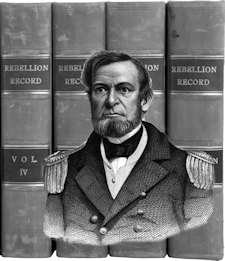January 16.—The Florida Legislature has passed an act forbidding the exportation from that State of any beef cattle, dried or pickled beef, hogs, pork, or bacon, corn, or corn meal, or salt, or provisions of any kind, whether salt or fresh. The act also forbids any person or corporation from buying these articles for purposes of speculation, and provides that all provisions of life shall be sold at a price not to exceed over thirty-three per cent over cost and charges.
—An imposing demonstration of the Germans of New-York, in favor of General Franz Sigel, was held in that city this evening. Resolutions expressive of the highest confidence in the General were unanimously adopted, and enthusiastic speeches were made by R. A. Witthaus, and other public personages.—(Doc. 15.)
—Two companies of cavalry made a reconnoissance from Lexington, Mo., and succeeded in capturing several notorious rebel desperadoes, together with a large lot of horses, mules, wagons, and commissary stores, which had been taken from Colonel Mulligan’s command, and a considerable quantity of boots and shoes, which the rebels took from the steamer Sunshine.
—Colonel Dietzler, in command at Lexington, ordered the arrest of a large number of wealthy and influential secessionists, whom he held responsible for the conduct of their hirelings in assassinating his men.
—In the House of Representatives at Washington, Mr. Dunn, from the Military Committer, reported a bill authorizing and directing the Secretary of War to furnish the prisoners of the United States, in the revolted States, with clothing and other necessaries of life, and for this purpose that he employ such agents as may be necessary. The bill was passed.
—The Richmond Examiner of this date has the following: “The report of the keeper of Holywood Cemetery that up to the 12th inst, five hundred and forty Confederate soldiers had been buried at that place, was one well calculated to induce reflections of an unpleasant nature. To account for this seeming excessive mortality among our brave defenders, we may state that, to within a very recent period, it had been the practice in the army of the Potomac to retain all sick and disabled soldiers in the scanty and ill provided hospitals at that place, till, from want of skill, the virulence of the disease, exposure, or some other cause, they were past the power of human skill. When the soldier was thus reduced he was despatched to Richmond. It may in truth be stated, that many who thus came were as good as dead on their arrival. The parties having charge of the hospital here have shown neither want of attention or skill. The soldiers, or many of them, when received, were past hope. No wonder that they died. The matter having attracted the attention of these in authority, steps have been taken tending to give the sick soldier a chance for his life, as we learn it is not contemplated in future to bundle them off from Manassas after the sands of life have so nearly run out as to leave the subject one chance in a hundred of surviving the journey to Richmond. A hospital, with all the necessary adjuncts, has been established at or near Manassas. In this all sick and disabled soldiers will be taken for treatment. When sufficiently convalescent to bear the fatigue of a journey to this place, and not before, he will be sent down in the sick train to be either cured, killed or discharged here. This is as it should be.”









